When a historian from Kashmir fell in love with Poland and a Polish woman, both love affairs ended tragically. Polish director Bozena Garus-Hockuba explored the loves, work and life of Peter Raina in her documentary film, “They took his love away.” In November 2009, Garus-Hockuba traveled to Chicago to present and discuss her film at the 21st Polish Film Festival in America. Following the screening of the film, Chicago-based journalist Justine Jablonska spoke with the director about the documentary and Peter Raina.
Why a film about Peter Raina?
He’s a historian who’s not Polish but is interested in Polish issues and Poland.
His life is very intriguing: He’s a Hindu born in Kashmir into a Brahmin family. His father held important posts with the Maharaja Karan Singh and Indira Gandhi’s government. He also worked at the United Nations in New York, and often took Peter along on his travels.
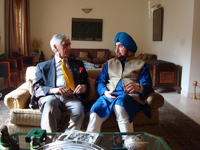
Peter Raina with Moni Chadha, Indian diplomat with the Indian embassy in Poland, 1962-1966; India
Courtesy of Bożena Garus-Hockuba / BIS Film
Peter left Kashmir as a teenager to attend schools in Geneva, New York, London, Berlin. His father groomed him for a political career. Peter says that he was supposed to become the next premier of India. That didn’t happen because he became fascinated with history.
Before leaving Kashmir, he found a book about [Polish scientist] Marie Sklodowska-Curie in his father’s library. Later, when World War II broke out, his father asked, “Do you know how the war began? It began in Poland.” And so Poland was locked into Peter’s mind from a young age.
After university, he decided to study history at Oxford, where he was encouraged to write his doctorate in Poland on Polish-German relations in the 1930s.
In 1962, he arrived in Poland with seven suitcases filled with outfits for every occasion. Polish customs officers asked if he was planning on selling the clothes in Poland.
In his Warsaw dorm, he soon realized there was no room for the suitcases – or their contents – so he gave away most of his clothes.
Warsaw in the 1960s was a different world than today. The University of Warsaw had 2,300 students and almost everyone knew each other. Raina joined student opposition groups. He met with many writers – Mieczyslaw Jastrun, Pawel Jasienic.
A friend took him to church to illustrate Poland’s Catholicism.
Raina met the national icon of the Polish church, [Primate] Bishop Wyszynski. Their meeting, scheduled for 15 minutes, stretched into hours of conversation. Afterward, the bishop invited Raina to stay for supper. From then on, Raina was fascinated with the Polish church.
The bishop has said that until that time, no one had written about the history of the Polish church and its leaders. The bishops has also said that’s it’s paradoxical that the person who did so was Hindu.
Raina was not just interested in the Polish church, but in Polish leaders. He decided to write about [Polish Communist leader] Gomulka to better understand Poland, and the Communism that had been forced onto Poland.
In the meantime, he met the love of his life – Barbara Wyreszczynska, a pretty, blond student. He’d been in Poland for five years, successfully defended his doctorate and wanted to stay for another year to write about Gomulka. It was then that he was invited to the now-famous meeting of 1967 at the university at which Leszek Kołakowski criticized the [Communist] party and its socialist structure. Raina also spoke, saying that he came to Poland thinking it was a democratic country but discovered it had no freedom of speech or discussion.
After that meeting, Raina was interrogated by the Służba Bezpieczeństwa [Communist secret police] and given two days to leave Poland: He’d been blacklisted, forbidden to enter Poland for 10 years. He managed to negotiate two weeks.
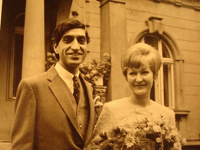
Peter and Basia’s wedding photo
Courtesy of Bożena Garus-Hockuba / BIS Film
He and Basia married in Berlin in 1968.
In Berlin, Raina worked at the Free University, and kept contact with the many Poles who came to and through Berlin. He helped many Poles of Jewish descent who emigrated from Poland after 1968. Some of those friendships exist to this day.
In the 1970s, he transmitted various underground publications and publishing materials from London and Paris through Berlin to Poland.
Until martial law, when his wife died [in Poland] in mysterious circumstances.
Recently, documents were discovered proving that beginning in 1969, she spied and informed on him back to the [Communist] government. That was a shocking discovery for him: He loved her very much. He claims she loved him too.
I spoke with officers at the Institute of National Remembrance. I looked at many documents at the institute. It doesn’t seem that she did what she did with premeditation. But why she did it – she took that with her to the grave.
One thing is for certain. Everyone – including his Hindu friends, who knew them both – says they were a wonderful couple, a loving couple.
From the documents, it seems most likely that she was drawn in by the secret police, who were exceptionally good at such matters.
She was very devoted to her parents and wanted to visit them back home. In 1969, she applied for a passport in Berlin to be able to return to Poland. It’s probably at that time that she was given a mission: she could either receive her passport and work with the secret police, or she would never return to her homeland and see her parents.
We’ll never find out what her motives were. Her actions, as Raina himself states in the film, didn’t harm him – so she must have been passing on information that wasn’t very important.
But that discovery was an enormous blow for him. Poland had betrayed him – he had to leave the country – and now a Pole had betrayed him, a man who had done so much for our country: He published many volumes of Bishop Wyszynski’s memoirs; he wrote about the Polish church, Polish history. But the [Communist] government labeled him an enemy of Poland.
There’s another important element. He’s from Kashmir. Many Kashmiris, including his family, had to leave Kashmir as a result of an ongoing conflict between Pakistan and India over Kashmir. Raina lost his home in Kashmir. His family emigrated to Canada, India, America. He, searching for a new home, found Poland. To this day he’s very emotionally attached to Poland.
He’s brought much into our modern culture. After his exodus to Berlin, he published much about Poland, its writers and the anti-Communist movement.
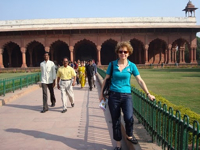
Director Bożena Garus-Hockuba on set in India
Courtesy of Bożena Garus-Hockuba / BIS Film
He’s not well-known in Poland. I made this film to show a man who is entwined in our own history – and not just studying it, and is one of its heroes.
At the Institute of National Remembrance, Raina found a note written by Czeslaw Kiszczak, [Polish minister of internal affairs during martial law], that as an anti-Polish agent, Raina should be neutralized. Raina asked Kiszczak what the note meant. Kiszczak, of course, wouldn’t say. But we can guess for ourselves.
Why are documentary films important?
They stop time. They show moments that may otherwise disappear. We have books, paintings, that show scenes from history. A documentary is a sort of historical document. It shows important or interesting people, moments from history – also emotions, people’s experiences.
In this film, we see Raina’s strong emotions about his history, his past and his wife. We couldn’t show these emotions on paper or even through photographs. But we can see them through film.
Documentaries are important because they deal with facts, and we must decide how to deal with these facts and what our attitude towards them is. We can also search for answers: Why did she spy? Maybe we don’t get a definitive answer. But through the interviews of those who knew her, the way I’ve edited their responses and the film’s overall construction, we get to know her.
We also see some of their relationship, which was a clash of two cultures. Maybe he, consumed with his work, didn’t notice that his wife was dealing with her own personal tragedy and being forced to spy. Maybe a Pole would have noticed. As an outsider, he didn’t. He didn’t have that same understanding [of the Communist system] that we have.
This film is not just a personal portrait but a historical one. Raina says that we don’t always have control of our own lives – that sometimes historical events impact us in a way that we’re no longer masters of our own destiny.
What can non-Polish viewers get from the film?
This man was so cosmopolitan. He felt at home in America, Oxford, Poland. And like many, he searched for his place in the world.
His personal tragedy – that’s beyond nationality.
Many marriages in America are mixed-race. But even when people speak the same language, there’s much that divides them and they may ultimately not understand each other.
What are your favorite moments of the film?
A scene at the end, when Raina is standing by his wife’s gravesite. He’s very emotional and says that even though she spied on him, she nevertheless loved him and he loved her. He says he’s happy that the name “Raina” will remain in Poland. The scene then concludes with one of his friends saying that taking away someone’s love is the worst crime of all.
CR
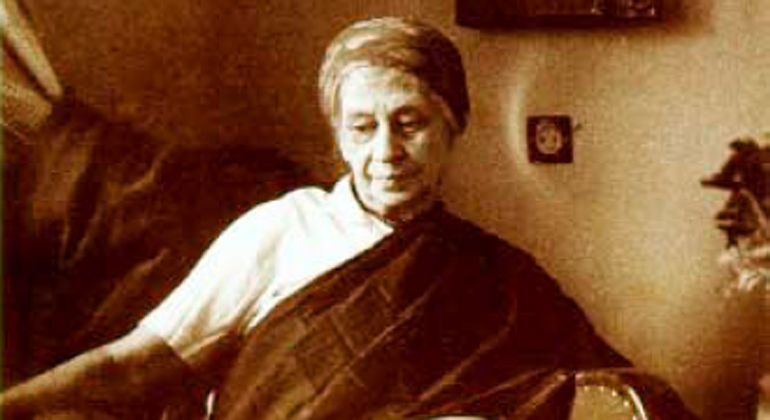

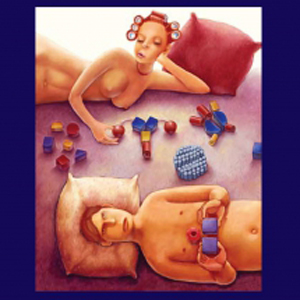

Fascinating story.
Can I get the link to the film on Internet oftge Documentary on Peter Raina
Thanks